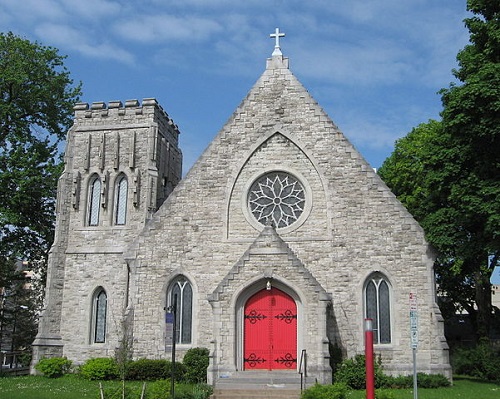The Differences Between The Anglican Church and the Episcopalian Church
Introduction
The Anglican Church was created after a disagreement between Pope Pius V and King Henry VIII of England resulted in the king breaking off relations with the Catholic Church in the sixteenth century. Henry VIII declared that the pope no longer had religious authority in England, and created the Church of England, which would later be referred to as the Anglican Church. Henry appointed himself to be the head of the Church of England, and persecuted the English Catholics who tried to maintain loyalty to the pope (Religious Library, 2016). Many Anglicans travelled to North America and settled there after the Puritans had successfully relocated there (The Church of England, 2016).
The Anglicans who relocated to North America practiced their religion in relative peace until the Revolutionary War that pitted the Thirteen Colonies against England (Religious Library, 2016). After the United States won its independence, the Anglicans in America made the decision to rename their church as the Episcopalian Church. This is because the Revolutionary War had caused a lot of resentment in America, and the Anglicans living there did not want to be persecuted for their religious ties to Great Britain (Religious Library, 2016).
Differences Between the Anglican Church and the Episcopalian Church
Even though the Episcopalian Church was initially a part of the Anglican Church, differences would slowly develop between the two churches after the Episcopalian Church chose to identify as an exclusively American religious institution. While the Anglican Church’s headquarters remain in the United Kingdom, the Episcopalian Church is centered in the US. The Anglican Church was created in the 16th century by Henry VIII, while the Episcopalian Church was established in the US by Samuel Seabury in the 17th century (Holmes, 1993).
In regards to doctrinal beliefs, the Anglican Church is far more conservative than the Episcopalian Church. The Anglican Church holds the Bible to be the supreme source of faith for its congregants, and asserts that true fellowship between members can only be facilitated by the Holy Spirit (The Church of England, 2016). The Episcopalians, though, allow diverse beliefs among their congregants (Holmes, 1993). While the Episcopalian Church’s doctrine holds that the Bible is the main source in spiritual and ethical matters, individual worshippers are encouraged to use reason to come up with various interpretations of God’s word.
According to Buchanan et al. (2013), the Episcopalian Church, unlike the Anglican Church, does not demand conformity in issues concerning worship and church rites. This is because the Episcopalian Church believes that it is only through welcoming diversity that worshipers can be encouraged to hold candid discussions on life subjects that concern them (Buchanan et al., 2013).
Due to the fact that the Anglican Church, or Church of England, was created by a king and not a religious figure, Anglicanism has always been perceived as a symbol of British independence and uniqueness (The Church of England, 2016). The Episcopalian Church was a branch of the Anglican Church from the start, and so does not symbolize non-religious authority (Holmes, 1993). The Episcopalian Church, though, has been at the forefront of embracing modern-day liberalism by ordaining church leaders involved in same sex unions (Buchanan et al., 2013). This action has been chastised by the Anglican Church, which has even exacted penalties on the Episcopalian Church for this action.
Conclusion
The main differences between the Anglican and Episcopalian Churches have to do with their different origins, and different understanding in regards to doctrinal factors that are related to the authority of the Bible. The Anglican Church was created by the English monarch, Henry VIII, when he broke away from the Catholic Church. The Episcopalian Church would emerge as a branch of Anglican worshippers who relocated to the United States. The Episcopalian Church is far more liberal than the Anglican Church, and has even ordained a man in a same sex union as a presiding bishop.
- The Differences between Socialism and National Socialism - April 8, 2016
- The Differences Between The Pharisees and Sadducees - April 8, 2016
- The Difference Between The Hindu Calendar and The Gregorian Calendar - April 8, 2016
Search DifferenceBetween.net :
3 Comments
Leave a Response
References :
[0]Buchanan, J., Fleming, M., Gregg, W., Robertson, C., & Whalon, P. (2013). A Primer on the government of The Episcopal Church and its underlying theology. Ecclesiology Committee of the House of Bishops. Retrieved from http://www.episcopalchurch.org/sites/default/files/primer_on_tec.pdf
[1]Holmes, D. L. (1993). A Brief History of the Episcopal Church. New York: Bloomsbury T&T Clark. Retrieved from https://books.google.co.ke/books?id=BsV-qSRKAnAC&pg=PA19&source=gbs_toc_r&cad=4#v=onepage&q&f=false
[2]Religious Library. (2016). Anglican/Episcopalian. Patheos. Retrieved from http://www.patheos.com/Library/Anglican
[3]The Church of England. (2016). Short History of Anglicanism. Retrieved from https://www.churchofengland.org/our-faith/being-an-anglican/anglican.aspx
[4]https://en.wikipedia.org/wiki/Grace_Episcopal_Church_%28Syracuse,_New_York%29


There is no “episcopalian” church. It is the Episcopal Church. Members are called “Episcopalians” and it is a part of the larger Anglican Communion, as is The Church of England. So all Episcopalians are Anglicans, but not all Episcopalians are Anglicans.
Also, there is only one Presiding Bishop, and we have not yet had anyone in a same sex union in that position. You are thinking of a Diocesan Bishop.
In the USA, the term Anglican most often references to the Continuing Anglican movement which is conservative in both morals and liturgy. They hold to orders from the Polish National Ch through Bp. Chambers. Most are closer to Eastern Orthodoxy than Roman Catholic or the Episcopal Ch. in their mentality.